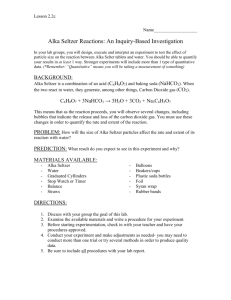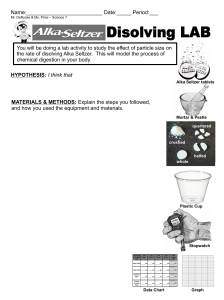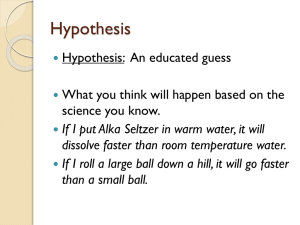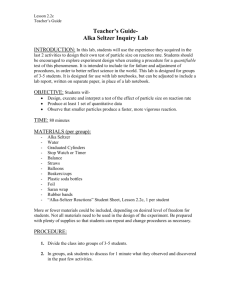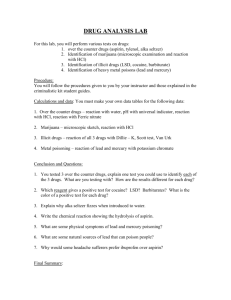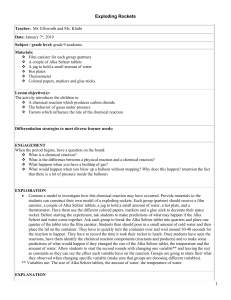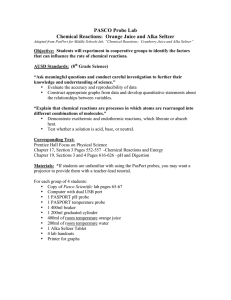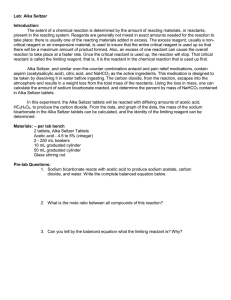Gummi Bear Experiment
advertisement
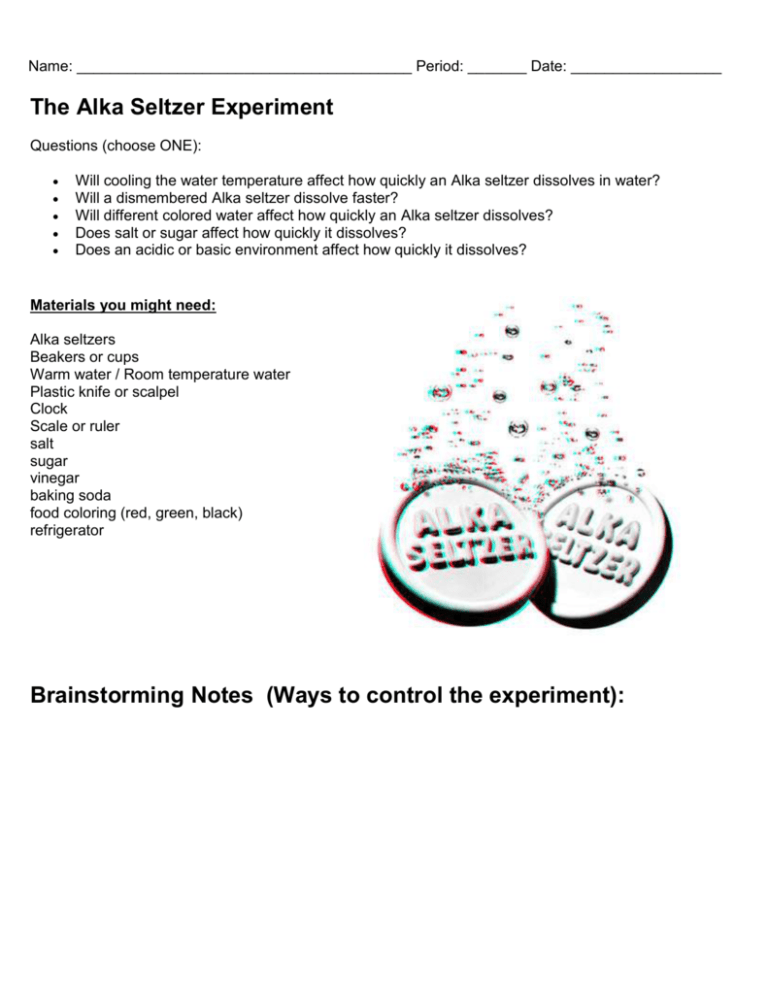
Name: ________________________________________ Period: _______ Date: __________________ The Alka Seltzer Experiment Questions (choose ONE): Will cooling the water temperature affect how quickly an Alka seltzer dissolves in water? Will a dismembered Alka seltzer dissolve faster? Will different colored water affect how quickly an Alka seltzer dissolves? Does salt or sugar affect how quickly it dissolves? Does an acidic or basic environment affect how quickly it dissolves? Materials you might need: Alka seltzers Beakers or cups Warm water / Room temperature water Plastic knife or scalpel Clock Scale or ruler salt sugar vinegar baking soda food coloring (red, green, black) refrigerator Brainstorming Notes (Ways to control the experiment): Statement of the Problem or Question: * What question(s) are you trying to answer? * Include any preliminary observations or background information about the subject Hypothesis: * Write a possible solution for the problem. * Make sure this possible solution is a complete sentence, using the If…then… format. * Make sure the statement is testable. Experiment: * Make a list of ALL items used in the lab. * Write a paragraph (complete sentences) which explains what you did in the lab. * Your procedure should be written so that anyone else could repeat the experiment. * Describe the experimental and control groups. * Identify the independent variable and dependent variable using your hypothesis in the If…then… format. Data: * This section should include any data tables, observations, or additional notes you make during the lab. * You may attach a separate sheet(s) if necessary. * All tables, graphs and charts should be labeled appropriately Conclusions: * Accept or reject your hypothesis. * EXPLAIN why you accepted or rejected your hypothesis using data from the lab. * Include a summary of the data - averages, highest, lowest..etc to help the reader understand your results * List one thing you learned and describe how it applies to a real-life situation. *Discuss possible errors that could have occurred in the collection of the data (experimental errors)
